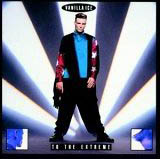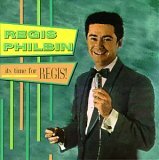Warner is trying out a new business model for selling music over the web (BBC, CNET). The new “e-label” will sell music exclusively online (no CDs) in three-song clusters, abandoning the conventional album format and allowing emerging artists to prove themselves gradually, without the pressure of a sink-or-swim album deal. What would Sgt. Pepper say?
Crusty aficionados have for some time been lamenting the death of the album in the age of .mp3s, file-sharing and iTunes, where kids are growing up with vast, shifting libraries of individual tracks instead of meticulously ordered, packaged collections. While it’s true that a generation of shufflers may not have much respect for the integrity of albums, it’s important to remember that most albums don’t have all that much integrity to begin with. When the recording industry moved from singles to the longer format of albums, it’s not as though there was a corresponding growth in the amount of quality material. As a result, most albums consist of a couple of hit singles padded with filler. No one should mourn the disappearance of this sort of album.
Albums the world would be better off without:

![]()

![]()

Making a good album is difficult, not unlike putting together a good collection of short fiction, or, in the case of concept albums, an entire novel. I like Warner’s idea because it allows musicians to mature gradually, building a fan base and working their way up to the longer form. In turn, one-hit wonders can fizzle out naturally without burdening the world with rotting, opus-sized legacies.
I’m not too worried about the death of the album, at least not for some time. Artists that are capable of producing worthwhile albums will continue to release long format work, and kids will continue to pick and choose songs, and shuffle away carefully chosen track orders. But at the same time, they will make eclectic playlists, some of them uncovering hidden connections that can only be made manifest by porous, digital libraries. It seems to me that it will be a healthy give and take. Just as I’m confident that the novel will survive in an age of scattershot online reading, so will the album in the age of the iPod.
(One way to foil the shufflers would be to release albums in one big track. Remember “Thick As A Brick”?)
if:book
A Project of the Institute for the Future of the Book

I’m not sure that I agree with that conclusion, if only from my own experience. I find that listening to music digitally – in particular with MP3s & iPods, but to a lesser degree with CD players – makes the unit I focus on the song itself rather than the album as a whole. Looking at what’s in the top 40 of my iTunes, only 18 tracks are from albums. 15 of those are from two albums which I seem to have played a lot. The other 22 are from singles, compilations, EPs; in a couple of cases, they’re just loose songs that I happened to play a lot. Certainly I’ve found myself much less interested in albums in general. Can anyone really do anything new with the CD as a form?
It’s also might be worth noting that there have been explosions in certain genres that seem linked to the rise of the digital. A great deal of dance music is still disseminated largely by 12” vinyl records with maybe four tracks on them; MP3s make it much simpler for home listeners to listen to the music. The German label Kompakt’s MP3 store has become enormously popular selling tracks previously only available on (German) vinyl. Many producers never bother putting out albums, only EP after EP; while some are structured, most aren’t. Home listeners, like DJs, pick and choose what they want to hear.
(Hip hop & dancehall reggae are similarly song-based forms, rather than album-based. Dancehall, which has exploded in the past five years, might be particularly instructive: most dancehall CDs are collections of different artists singing over the same riddim.)
The analogue of the novel & chapters isn’t quite accurate, I think: most chapters can’t be disarticulated from their novels in the same way that a song can be listened separately from its album, at least in the pop tradition. A chapter of a novel isn’t quite a short story.
(Classical works, it should be noted, don’t quite work the same way: there, the relation of the part to the whole is understood to be much more important.
death of the album? (or, for that matter, the novel?)
[Source: if:book] quoted: mp3s, file-sharing and iTunes, where kids are growing up with vast, shifting libraries of individual tracks instead of meticulously ordered, packaged collections. While it’s true that a generation of shufflers may not have muc…
I’m part of the so-called “iPod Generation” and I still don’t want to have the fricking thing and still prefer whole albums (complete with packaging and special features) that can still be signed by the artist (frankly doubt artists would ever sign MP3 players or iPods for that matter) and displayed at the house for me and maybe my kids to appreciate when they’re old enough. And I have friends who still like albums too.
In short the market for traditional albums will remain though not in a big scale like it used to.
Albums beat single tracks any day. There’s nothing like an hour journey into the sound. Unless you listen to some crappy pop music, or gangster rap (as some hip hop is actually good music).